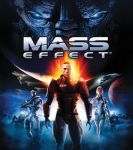 Twenty years later, what is the legacy of Babylon 5?
Twenty years later, what is the legacy of Babylon 5?
*** SPOILER ALERT: DO NOT READ UNTIL YOU HAVE FINISHED WATCHING Babylon 5 ***
Whatever my thoughts on Babylon 5, I can’t help but respect J. Michael Stracynski’s ambition. Babylon 5 was the first serialized science fiction TV show in an age when many believed Star Trek was the only form of science fiction that would survive on television. It’s even more impressive that the show often succeeds, despite the real-world obstacles Stracynski encountered.
That said, I’m not entirely sure what legacy Babylon 5 has had. The show has a small but passionate fan base. Several made-for-TV movies have been released continuing the franchise, as well as a sequel series Crusade, but these have generally received mediocre reviews (hence why I chose not to review them). The franchise still hasn’t broken into mainstream popular culture. The main series ended before the explosion of the internet, perhaps explaining why the show seems not to have caught on.
Babylon 5 was the first serialized science fiction space opera on television, but also in some ways the last of its kind. Science fiction on TV has tended to shy away from shows about aliens, interstellar politics, and epic adventures (although SyFy’s Defiance seems to be a partial return to form). Perhaps most notably, few other creators seem to cite Babylon 5 as an influence or inspiration. Rocke O’Bannon explicitly situated Farscape both in the tradition of and a reaction against the original Star Trek. Ronald D. Moore of Battlestar Galactica seemed driven to go beyond the confines of what he was allowed Star Trek: Deep Space Nine. Shows like Firefly, which have no aliens and no politics, seem even further away from Babylon 5.
I suspect that Babylon 5 might have had an important influence in the video game industry. Very few modern shows on TV are as intricately planned as Babylon 5; most shows seem to just “wing it” and are lucky to get beyond the first season. But video games are by their nature intricately planned. For major titles like Bioshock, programmers and writers must craft a 30+ hour story with plot twists and a huge cast of characters. Moreover, video games seem more willing to experiment with blurring the lines between heroes and villains, akin to the relationship between Londo and G’Kar. With morality choice systems in RPGs like Dragon Age, a character who seemed to have been a villain might in fact become an ally (or vice versa).

In fact, the Mass Effect trilogy comes across as almost a reimagining of Babylon 5. An interstellar government on a cylindrical space station (the Citadel in lieu of Babylon 5) must stop an ancient race of dark ships shaped like squids (Reapers in lieu of Shadows). The station is home to representatives from Earth and three other superpowers, as well as ambassadors from other minor worlds. The main protagonist, Commander John Shepard, must lead the fight by organizing the alien races into an alliance (note he has the same initial as Babylon 5’s protagonists, Jeffrey Sinclair and John Sheridan). Mass Effect tells a complicated story in which enemies become potential friends, and vice versa. (I’m actually starting to wonder why Stracynski hasn’t sued Bioware for copyright infringement…)
Obviously, Mass Effect is not simply a Babylon 5 copycat. For one thing, the game is more interested in individual choice than in religion and faith. Still, the parallels help serve the point that Babylon 5’s intricately planned space operate seems better suited to video games than television. Economically, video game storytelling does not require the budget of a television show. No need to create elaborate costumes or makeup for the aliens. If an actor leaves the production, the digital model can still be used (it’s much easier to replace voice actors than live actors). With digital animation, there’s no limit to the number of spaceships or the types of aliens possible in the game. Programmers don’t need to worry about blending the animation with live action.
Ultimately, Babylon 5 certainly deserves a place in television history and in science fiction history. Its legacy is probably not as sweeping as some of its fans might claim (no, it did not invent serialized television), but it helped prove the viability of non-Star Trek science fiction. Unfortunately, the production values date the show. As TV screens get bigger and audiences become accustomed to HD, I worry that most modern viewers will be put off by the the dated effects and low visual quality. Fortunately, the chances of a Babylon 5 revival look somewhat brighter. J. Michael Stracynski recently announced that he intends to write and produce a new Babylon 5 movie. The film will be a reboot, but will tie into the existing Babylon 5 universe. At the least, it might introduce the franchise to a new audience.
This concludes my journey through Babylon 5. I hope this series of posts about Babylon 5 encourages you to try watching the show, if you haven’t already…
